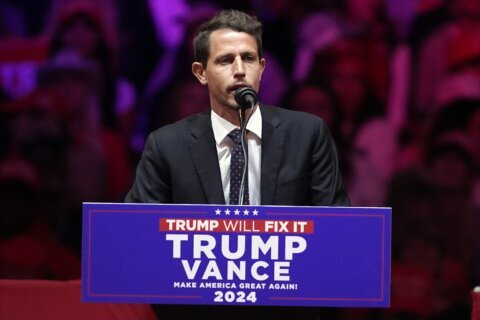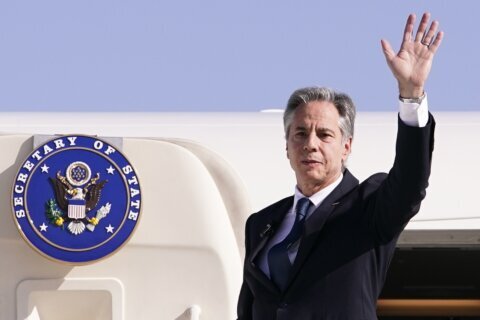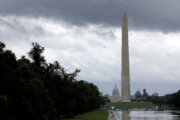As COVID-19 cases in the United States reach historic highs, Dr. Anthony Fauci, chief medical adviser to President Joe Biden, remains convinced in a light at the end of the tunnel. To get there, he warns that rich countries must see global support to low- and middle-income countries as in their self-interest.
After a tense Senate hearing on spiking coronavirus cases around the country, Fauci sat down with J. Stephen Morrison, the senior vice president and director of the Global Health Policy Center, to discuss the third year of the pandemic and the future of the virus. Hosted by the Center for Strategic and International Studies, the conversation covered the pandemic’s progress, future, and what Fauci called the rich countries’ duty to do more globally in the fight against COVID-19.
“We have a moral responsibility as a rich nation to make sure that those nations of low- and middle-income that don’t have the resources to do the kind of things that we can do, have equity,” he said. “And we can provide it, but we can’t do it, the United States, alone.”
[READ: COVID-19 Vaccination Rates by Country]
On Monday, the United States reported over 1.48 million new cases, shattering the previous world record for single day cases, according to the Johns Hopkins COVID Tracker. In a press conference on Tuesday, Dr. Hans Kluge, World Health Organization’s regional director for Europe, warned that over half of Europe could be infected with COVID-19 in the next six to eight weeks.
Fauci cited high levels of U.S. global investment, but acknowledged that vaccine doses fall far short of global demand. He cited government records that show 365 million vaccine doses have been delivered from the U.S. to over 110 countries, 4 billion to COVAX, and President Biden has pledged to donate at least 1.2 billion doses to low- and middle-income countries. Both Biden and Fauci have pointed to U.S. vaccine donations as evidence of the U.S. leading the fight against the pandemic.
However, high-income countries are being widely criticized for instigating global inequality in vaccine access through the hoarding of vaccine doses early in the pandemic. As they pledge to donate more doses, public health officials and experts are drawing attention to rich countries stockpiling vaccine doses at a rate disproportionate to their population. This resulted in the highest income countries being vaccinated at 10 times the rate of the lowest, according to Bloomberg research. The same data showed that while 157 doses have been administered for every 100 people in the U.S. by March, most countries in Africa had yet to receive a single shipment.
While the WHO estimates that the first quarter of 2022 will see a shortfall of 3 billion doses globally, a coalition of advocates around the country reported a much higher discrepancy. In a report submitted to The Washington Post, they placed the year’s global vaccine demand at 22 billion doses — which would leave the world short 15 billion doses.
“We’re going to do more; we’re going to try and expand the capacity to get more drugs there,” Fauci argued. “Is that enough? No. But we have done a fair amount. I hope that our example will get the other countries that have wealth and resources to pitch in and do the same thing.”
“It is not only a moral responsibility, it’s almost self-interest, that if you continue to have the virus freely circulating throughout the world, there is always the danger that there’s going to be another variant that will come back to bite us,” he continued.
Morrison, discussing a recently released CSIS report that he co-authored titled “2022 is the Year of Decision,” argued for an easing of tense relations with China in order to form a partnership to investigate the origins of the pandemic. He cited the report’s concern about the world’s ability to meet the ongoing challenges from this pandemic, and any future ones. With that in mind, the paper calls for U.S. investment of $18 billion to $20 billion over the next five years in pandemic response and future pandemic preparedness. Echoing this concern, Fauci said that without global investment, it will be difficult to transition out of this crisis and protect against future viruses.
“We need to do whatever it takes to both strengthen our relationship with the WHO and strengthen our interactions with countries throughout the world,” he said. “So that the next global pandemic is truly a global response, with resources, with equity, with all the things that you need to have an adequate and very appropriate and successful response to the next pandemic.”
More from U.S. News
‘Vaccine Apartheid’ Risks Rising Global Shortages in 2022
COVID-19 Vaccination Rates by Country
Countries Without Reported COVID-19 Cases
As Omicron Variant Surges, Fauci Urges Greater Global Partnership originally appeared on usnews.com







